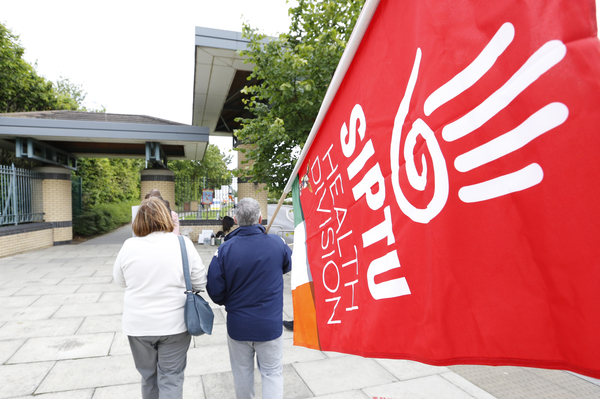The ICTU group of healthcare unions representing staff in the HSE has said it remains concerned over the ability of the national health body to staff its services adequately, as the HSE’s latest staffing strategy shows that vacancies up to the end of 2023 have been effectively suppressed.
Unions have also raised questions with the HSE about how, in the absence of filling posts, funding for sanctioned posts was spent. Unions sought a meeting with the HSE following the announcement on Sunday (14th July) that it had lifted its ban on recruitment, which had been in place since October 2023.
In a statement following this morning’s meeting, speaking on behalf of the ICTU group, the INMO’s Albert Murphy said: “We immediately sought this meeting following correspondence from the HSE last week stating that strict controls would be placed on recruitment for the remainder of 2024.
“What has become clear is that there are still a significant number of vacant posts that went unfilled up the end of 2023.
“We were advised this morning that these posts will have to be considered in the context of the headcount for 2024. That is a complicated way of saying that these posts are effectively lost, he said.
Kevin Figgis of SIPTU added: “The question is now, were the posts that went unfilled in 2023 fully funded? And, if they were, where was that money spent?
“We believe the failure to fill these posts will continue to place severe pressure on healthcare workers to provide a safe service. The provision of timely and safe care is now an afterthought,” he said.
Unions have said they will reflect on this morning’s developments and revert back to management later in the week.
Fórsa’s Ashley Connolly added: “The inconsistency in its approach to human resources management doesn’t bode well for an employer, like the HSE, that’s hoping to persuade young workers to take up health service employment rather than leave the country.
“The HSE’s pay and numbers strategy (PNS) for 2024 has effectively guaranteed to loss of thousands of frontline positions. We know from our members that these will be vacancies in community health services, mental health, services to older people and is likely to affect disability services also.
“We remain concerned too for the additional pressure this will have on our members as they continue to try and deliver services in circumstances where vacant posts have been long suspended but now appear to be permanently suppressed,” she said.









